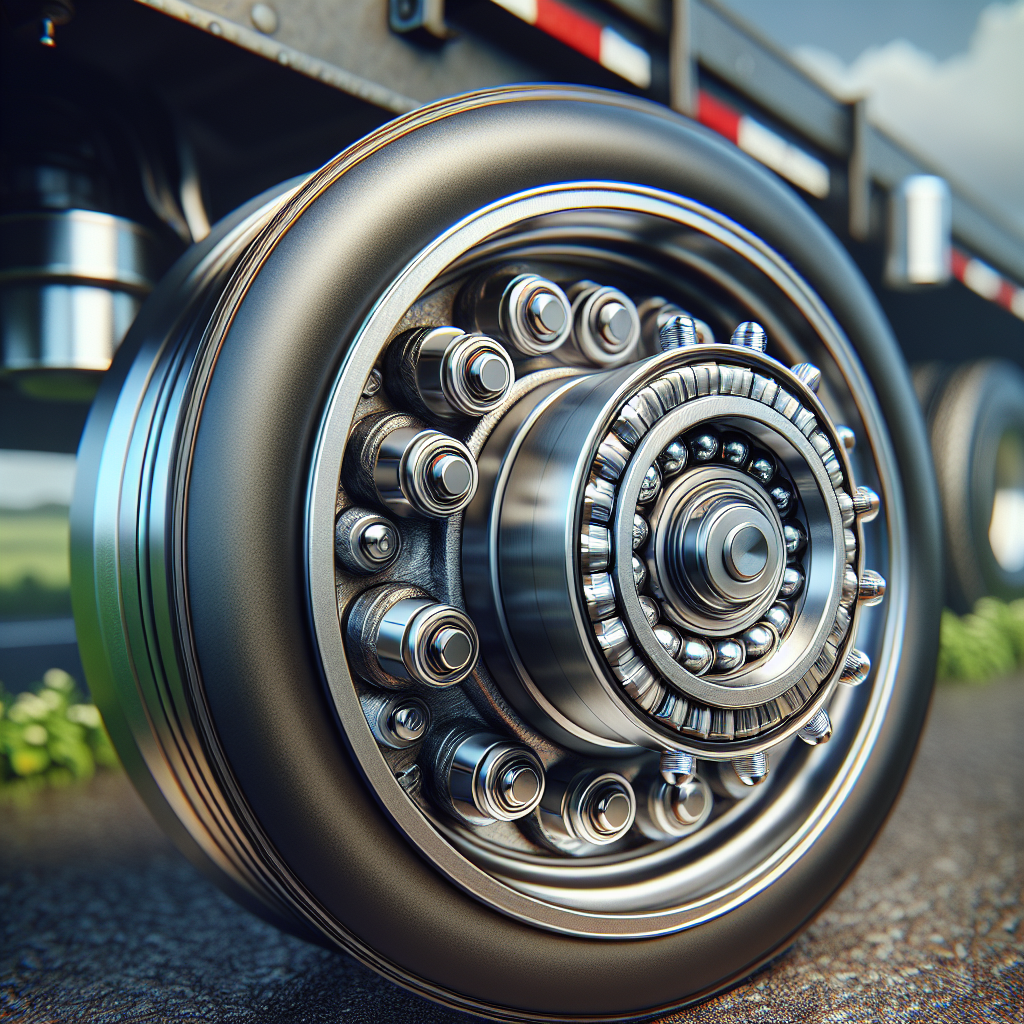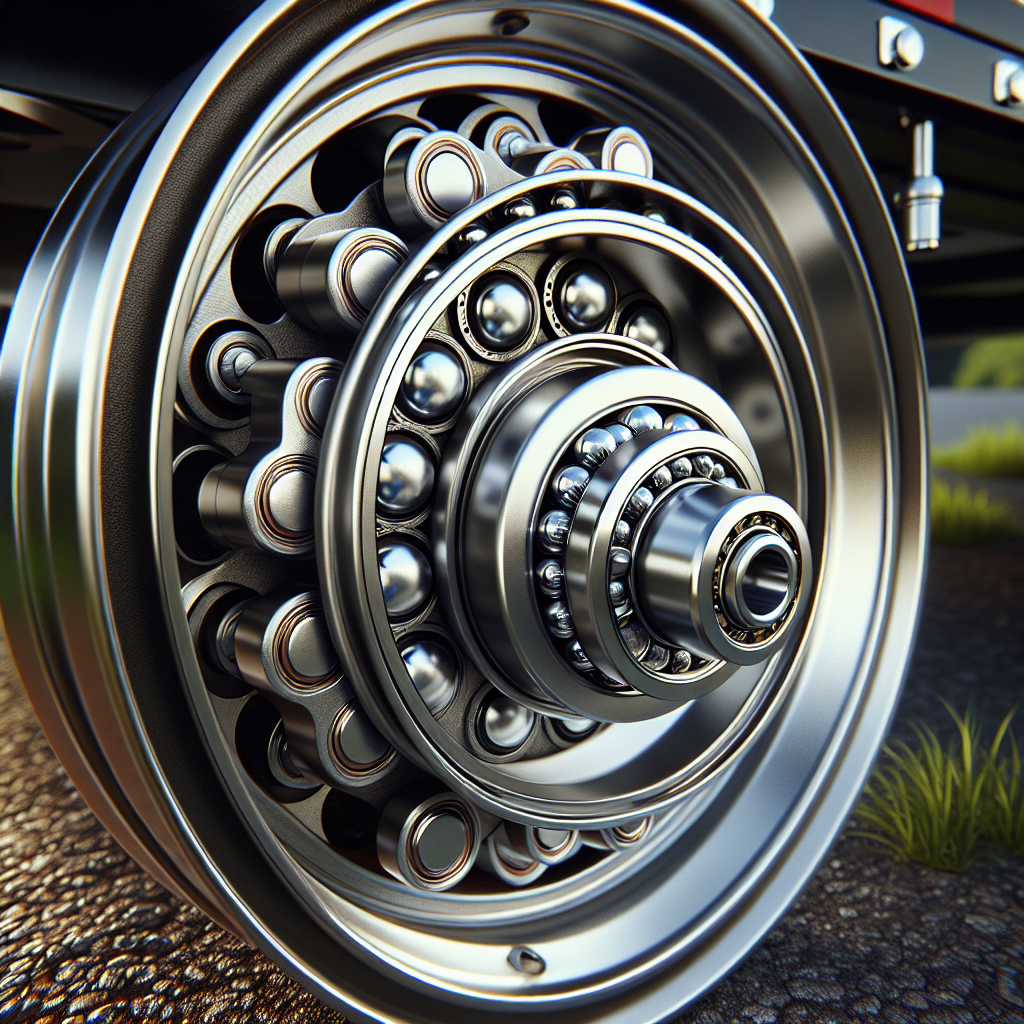Understanding trailer wheel bearing movement is crucial for anyone who relies on trailers for transportation. Wheel bearings play a vital role in ensuring that the wheels rotate smoothly and support the weight of the trailer. When these bearings are functioning correctly, they contribute to the overall safety and efficiency of your towing experience.
One of the primary functions of wheel bearings is to reduce friction between the wheel and axle, which allows for smoother movement. However, if the wheel bearings are not adequately maintained, various issues can arise:
- Excessive Wear: Over time, wheel bearings can wear down, leading to increased play or movement within the assembly.
- Heat Buildup: Poor lubrication or damaged bearings can cause heat to build up, potentially leading to catastrophic failure.
- Increased Stopping Distance: Compromised wheel bearings can affect braking performance, increasing the stopping distance of the trailer.
Regular inspection and maintenance of wheel bearings can prevent these issues, promoting a safer towing experience. Monitoring devices, such as those provided by TrailerWatchdog, can offer real-time data on wheel bearing movement, helping you identify potential problems before they escalate. Tow with peace of mind, knowing that TrailerWatchdog is standing guard.
Signs of Potential Wheel Bearing Issues

Recognizing the signs of potential wheel bearing issues early can save you from costly repairs and ensure a safer towing experience. Trailer wheel bearings are designed to handle substantial loads and stresses, but they can still develop problems over time. Here are some warning signs to watch out for:
- Unusual Noises: A common indicator of wheel bearing issues is a grinding or whining noise coming from the wheels. This could be a sign that the bearings are failing and need immediate attention.
- Excessive Play: If you notice that the wheels have excessive lateral movement when inspected, it may indicate that the bearings are worn out or damaged.
- Vibration While Towing: An increase in vibration while driving can be a telltale sign of bearing problems. If the vibrations become noticeable, it is essential to check the wheel bearings promptly.
- Uneven Tire Wear: If one tire shows more wear than others, it could be a result of failing wheel bearings affecting the alignment and balance of the trailer.
Being proactive about these signs can help you maintain optimal functionality of your trailer and avoid unexpected breakdowns. Regular inspections, combined with a keen awareness of how your trailer behaves on the road, can go a long way in ensuring safety and reliability.
Maintenance Tips for Trailer Wheel Bearings
Proper maintenance of your trailer wheel bearings is crucial for ensuring their longevity and performance. Following a few essential tips can help you keep your bearings in top shape:
- Regular Inspections: Conduct routine checks of your wheel bearings, especially before long trips. Look for signs of wear, such as unusual noises or excessive play, and ensure that they are properly lubricated.
- Proper Lubrication: Ensure that your wheel bearings are adequately lubricated with the appropriate grease. Over time, lubricant can break down or be expelled, leading to increased friction and wear. Repack the bearings with fresh grease as part of your regular maintenance schedule.
- Torque Settings: When reinstalling wheel bearings, make sure to check the torque settings according to the manufacturer’s specifications. Improperly torqued bearings can lead to premature wear or failure.
- Monitor Temperature: Keep an eye on the axle temperature during your trips. An increase in temperature may indicate that the bearings are not functioning correctly. Utilizing a trailer monitoring system can provide real-time data on axle temperatures, allowing for immediate action if needed.
By adhering to these maintenance tips, you can significantly reduce the risk of wheel bearing issues and enhance the overall safety and performance of your trailer.
The Impact of Wheel Bearing Movement on Safety

The movement of trailer wheel bearings plays a pivotal role in ensuring safe towing operations. When wheel bearings are functioning correctly, they facilitate smooth rotation and maintain proper alignment of the wheels. However, any discrepancies in bearing movement can lead to serious safety concerns.
Excessive Movement: If there is excessive movement in the wheel bearings, it can result in misalignment of the wheels. This misalignment not only affects handling but can also lead to uneven tire wear, increasing the likelihood of tire failure during transit.
Heat Generation: Inadequate lubrication or worn-out bearings can cause excessive heat generation. Overheating can lead to catastrophic failures, including the complete seizure of the wheel. This can result in loss of control, potentially causing accidents that could endanger other road users.
Braking Performance: Wheel bearing movement directly impacts braking performance. If the bearings are loose or damaged, it can lead to brake drag, reducing the effectiveness of the braking system. This can result in longer stopping distances, particularly in emergency situations.
Preventative Measures: To mitigate these risks, regular inspections and maintenance are essential. Utilizing advanced monitoring systems that provide real-time data on bearing conditions can help identify issues before they escalate, ensuring that your trailer remains safe on the road.
How to Monitor Wheel Bearing Performance

Monitoring wheel bearing performance is crucial for maintaining the safety and efficiency of your trailer. Implementing a systematic approach to track the condition of your wheel bearings can prevent unexpected failures and costly repairs.
1. Regular Visual Inspections: Conduct routine visual inspections of your trailer's wheels and bearings. Look for signs of wear, such as rust, grease leakage, or unusual noise during movement. Any visible damage should prompt immediate attention.
2. Temperature Monitoring: One of the most effective ways to monitor wheel bearing performance is through temperature monitoring. Elevated temperatures can indicate excessive friction or inadequate lubrication. Utilizing a trailer monitoring system that provides real-time axle temperature data can help you catch potential failures early.
3. Vibration Analysis: Use vibration analysis tools to assess the condition of your wheel bearings. Abnormal vibration patterns can signal issues such as misalignment or bearing wear. Regularly tracking these vibrations can provide insights into the health of your bearings.
4. Professional Inspections: Engage professionals for periodic inspections of your trailer's wheel bearings. Experienced technicians can conduct thorough checks and provide recommendations based on their findings.
5. Implement Monitoring Technology: Investing in advanced trailer monitoring systems can revolutionize how you manage wheel bearing performance. These systems can alert you to any anomalies in real-time, ensuring that you remain proactive in maintaining your trailer's safety.
Preventing Catastrophic Failures in Trailers

Preventing catastrophic failures in trailers is essential for ensuring safety on the road. With proper maintenance and monitoring, you can significantly reduce the risk of accidents caused by mechanical failures.
1. Regular Maintenance: Consistent maintenance checks are vital for keeping your trailer in optimal condition. This includes inspecting wheel bearings, brakes, tires, and other critical components. Schedule routine maintenance every few months to identify and address potential issues before they escalate.
2. Utilize Monitoring Systems: Implementing a state-of-the-art trailer monitoring system can provide real-time data on crucial metrics such as axle temperature and tire pressure. These systems alert you to any irregularities, allowing for timely intervention. By turning any trailer into a smart trailer, you can keep track of the health of your equipment 24/7.
3. Educate Yourself and Your Team: Understanding the signs of potential failures is crucial. Ensure that everyone involved in trailer operation is educated about common issues and knows how to respond appropriately. Training sessions can help reinforce this knowledge.
4. Load Management: Overloading your trailer can lead to excessive strain on wheel bearings and other components. Always adhere to the manufacturer's weight limits and distribute cargo evenly to maintain balance and reduce wear.
5. Monitor Tire Health: Tires play a critical role in trailer safety. Regularly check tire pressure, tread depth, and overall condition. Replace tires that show signs of significant wear or damage.
By taking proactive steps to monitor and maintain your trailer, you can prevent catastrophic failures and ensure a safe towing experience. Tow with peace of mind, knowing that trailerwatchdog is standing guard.








